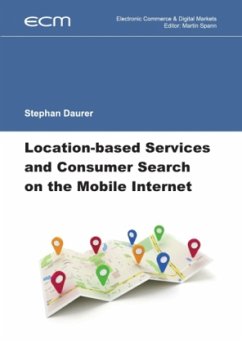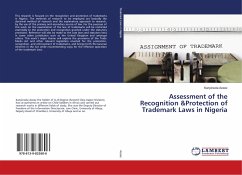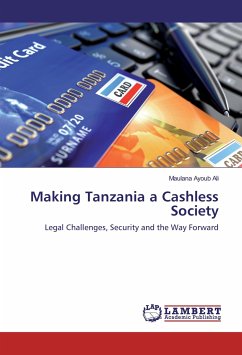
Legal&Regulatory Framework on Cashless Economy&E-commerce in Nigeria
Versandkostenfrei!
Versandfertig in 6-10 Tagen
37,99 €
inkl. MwSt.

PAYBACK Punkte
19 °P sammeln!
The first part of the book introduces the reader to cashless economy and electronic commerce is in commercial transactions in Nigeria. The major findings in the work is reflected on insufficient legal and regulatory framework for electronic signature, taxation of electronic commerce, on-line consumer protection among others, are the challenges to the development of electronic commerce in Nigeria. The reader established in the work that Nigeria has taken the steps to eliminate obstacles to effective electronic commerce by proposing some bills. Nevertheless, some notable defects in an effective ...
The first part of the book introduces the reader to cashless economy and electronic commerce is in commercial transactions in Nigeria. The major findings in the work is reflected on insufficient legal and regulatory framework for electronic signature, taxation of electronic commerce, on-line consumer protection among others, are the challenges to the development of electronic commerce in Nigeria. The reader established in the work that Nigeria has taken the steps to eliminate obstacles to effective electronic commerce by proposing some bills. Nevertheless, some notable defects in an effective electronic commerce regulation still persist. The end of the study among others focuses on recommendation for effective electronic commerce transactions in Nigeria.












